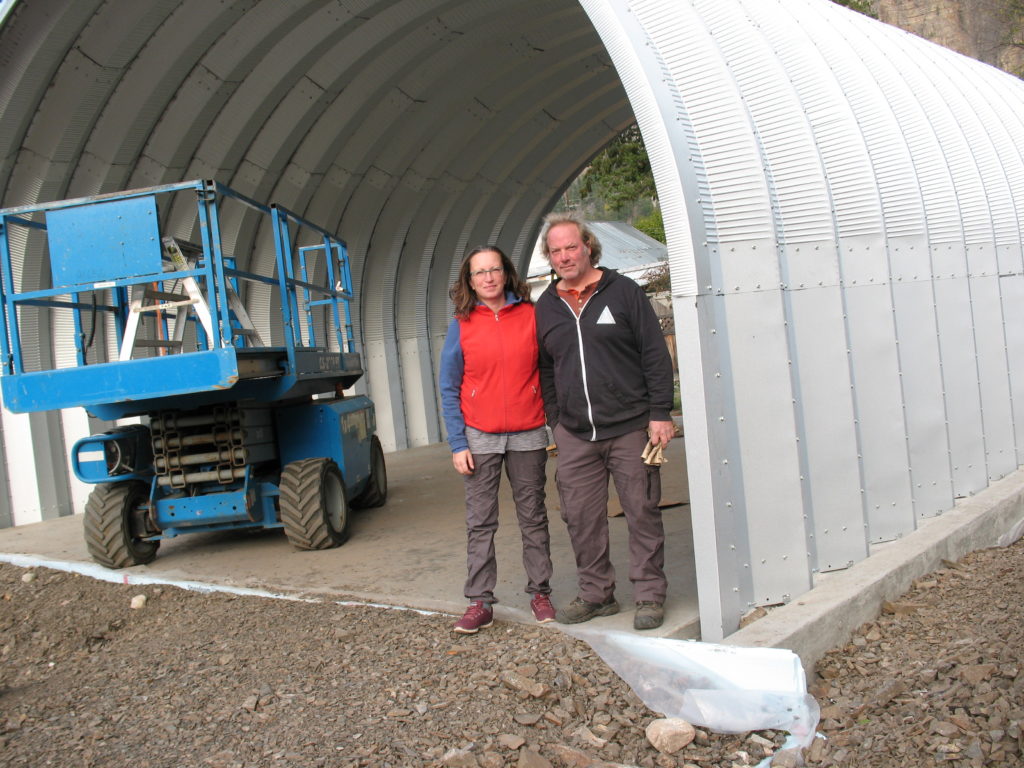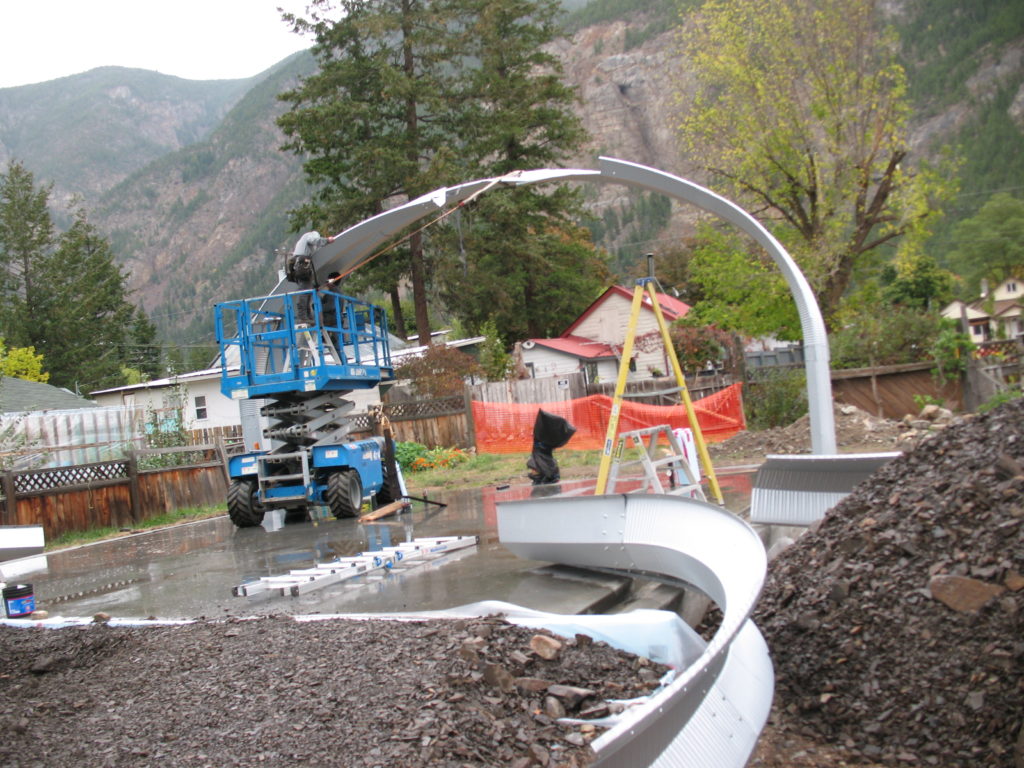
When the iconic Hitching Post restaurant went up in flames the night of October 23,2018 it marked the beginning of a Hedley community saga that is ongoing to this day. Since the fire, the story of Bill Carmichael and Trisha Mills, the loss of their business and health, and their courage in the midst of calamity has been unfolding mostly behind the scenes. Also largely behind the scenes has been the response of some in our community. It’s an intriguing and inspiring chapter in local history and deserves to be passed on to the next generation.
When Linda and I visited Bill in the Penticton hospital shortly after the fire, we were appalled at his multiple serious injuries. Trisha had been taken to the Kamloops hospital with equally devastating injuries. Although Bill expressed hope for the future, we feared they might both be confined indefinitely to wheelchairs. Many in Hedley rallied to their cause, contributing to a gofundme site set up to help them with initial living and medical expenses. The insurance company has been resistant and for most of two years Bill and Trisha have lived in a 22 foot motor home with their dog Dexter.
In spite of significant continuing pain, they have struggled to regain their ability to walk. Often I have seen them hobbling down the alley behind our home, steadying themselves with their walking sticks. Unless asked, they don’t talk about the extreme discomfort, or the loss of income and possessions. “We talk every day about our plans for the future,” Bill said. “We want to again provide a food service to Hedley,” Trisha added. “How that will look will depend on what our bodies allow us to do.” This summer they purchased a food truck business as a first step toward achieving that goal. This helped sustain them financially over the summer but with colder weather, they have suspended the business until next year. “My body requires double digit temperatures to function in the food truck,” Trisha said.
Putting the food service on hold doesn’t mean they will relax over winter. Needing a home, they decided to erect a metal structure on their lot behind the restaurant site. “It’s less expensive, and it won’t burn,” Bill said. “I put one up about 25 years ago, with the help of a rugby team. There was lots of scaffolding and quite a few ladders. I was planning to do it again. Several men from the community offered to help.”
He’s amazingly gritty but much more limited physically now. Realizing this would be an extremely difficult project for Bill, Dennis Matson, pastor of the local church, suggested he bring in a contractor with a mechanical lift. “We don’t have the funds for that,” Bill said. Dennis talked with a Princeton contractor and obtained a considerable reduction in price. The church contributed some funds, bringing the cost down to an affordable level.

Prior to erection of the metal structure, I visited Bill at the building site. With a shovel and wheelbarrow he was distributing a large pile of coarse gravel fill around the perimeter. For about an hour I loaded the wheelbarrow and he pushed it and dumped the fill. The terrain was uneven and I saw that he needed to call on deep inner reserves of determination and perseverance to do the work. He didn’t groan or complain, but admitted that he and Trisha have “clenched bodies” at the end of each day.
When I showed up the following morning to help complete distributing the fill, Trisha was there and had already finished the project. I expressed concern that she was pushing her injured body so hard. “It’s o.k,” she said. “It needed to be done.” The metal portion of the structure is now in place, but it needs to be insulated and the ends enclosed.
Bill and Trisha both live with pain every day. Bill still needs three more surgeries. I consider their story important because they are showing our community it is possible to call on deep inner reserves and forge ahead in spite of adversity.
Their story is also a reminder that in this time when communities are struggling with increasingly complex issues like covid-19, opioid deaths, homelessness, poverty and much more, we need to stand by individuals and families in distress. When the people of a community reach out to those in need, everyone benefits.
